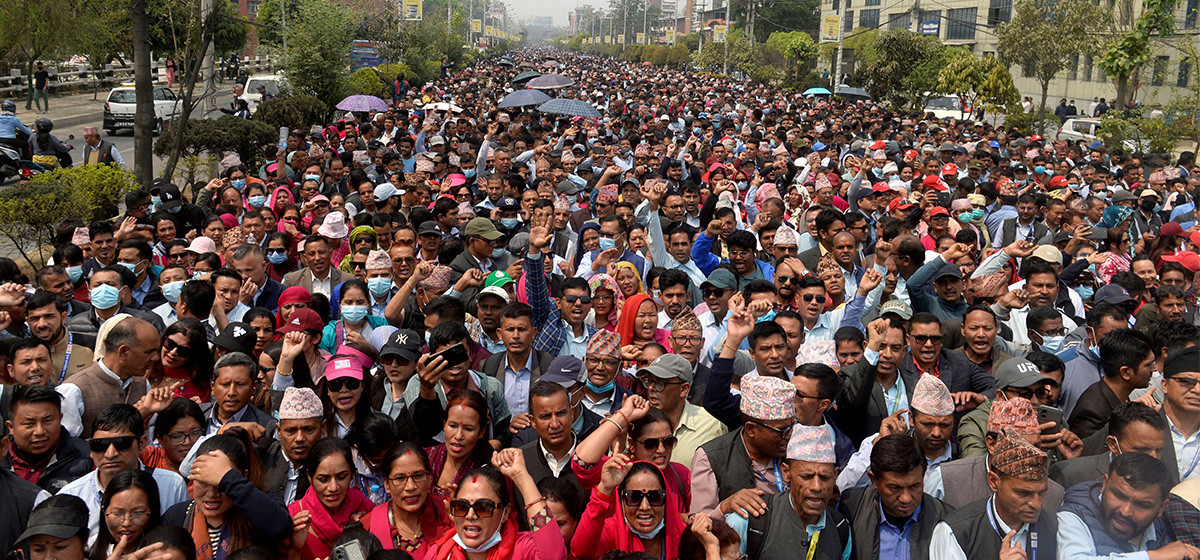Public school teachers from across the country have launched an indefinite protest in Kathmandu, demanding the introduction of the School Education Act. The agitating Teachers' Federation has announced that their protest will continue until the Act is enacted. These teachers had staged a similar protest last year, calling for the enactment of the same Act. However, the government's progress has been so slow that the draft of the Act has yet to be finalized. The Bill is currently under consideration in the Education, Health, and Information Technology Committee of the House of Representatives. The committee has formed a sub-committee to work on the bill. While the government appears focused on containing the pro-monarchy group’s protests, it should not overlook the protest involving thousands of teachers. As the protest continues, tensions between security personnel and the agitating teachers could escalate. It is high time the government took their demands seriously and introduced the School Education Act as soon as possible.
The new academic session of public schools is set to begin within weeks. It is not ideal to have these teachers protesting in Kathmandu while the government repeatedly ignores their calls. Teachers likely prefer to teach in the classroom rather than protest on the streets. However, the agitating teachers have announced they will not return home until their demands are met, as they were deceived after withdrawing their protests and returning home following the government's promise to introduce the new Act. A promise alone may not be enough to convince the teachers to end their protest this time. Since the winter session of Parliament has already been prorogued, it is unlikely that the government can introduce the new Act immediately. Therefore, it is essential for the government to sit down with the representatives of the agitating teachers. The teachers have demanded that the government introduce the Act, even if it means issuing it as an ordinance. The most important issue here is the education of students. The government must find ways to address the demands of the agitating teachers and send them back to the classrooms as soon as possible. It is encouraging to note that the Ministry of Education, Science, and Technology has invited the protesting teachers for talks. The teachers should attend the talks and temporarily suspend their movement. They should also work toward finding a solution so that they can return to the classrooms quickly.
Come with fixed agendas, govt will address your demands: PM Oli...

The political environment is already tense with the launch of protests by pro-monarchy groups in the capital on March 28. Forcing thousands of teachers to continue their protests is detrimental, even from the perspective of law and order. Anarchic elements could infiltrate the protests and create disorder in Kathmandu. Therefore, it is in the interest of both the government and the teachers to finalize the bill under discussion in the parliamentary committee, without violating previous agreements or the Constitution of Nepal, 2072. If the bill is finalized and issued as an ordinance, the teachers' demands would be met without defying Parliament. Teachers should not be expected to wait for the next parliamentary session, as this would seem like unnecessary delay. The government must reassure the Teachers' Federation that the law will be passed and convince the protesting teachers to return to their schools for student enrollment. Teachers should also withdraw their movement and demonstrate goodwill. Both the parties should act responsibly to ensure that student’s education is not affected in any way.





































